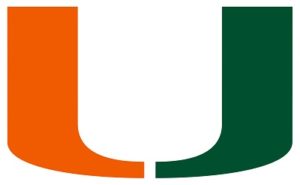Catch of the Week: University of Miami to Pay $22 Million to Resolve Allegations of Lab Test Fraud

The University of Miami will pay $22 million to resolve three False Claims Act lawsuits, the first of which was filed in 2013. The government alleged that UM, which operates a medical school out of Jackson Memorial Hospital and an extensive health system spanning four south Florida counties, fraudulently billed government health care programs to boost declining revenues. Jackson Memorial will separately pay $1.1 million to resolve claims against it.
Four whistleblowers filed three lawsuits alleging that UM engaged in three flavors of fraud against the government, all involving clinical laboratory testing.
First, the University allegedly billed federal health care programs for medically unnecessary laboratory tests for kidney transplant patients. The patients, who received transplants from UM’s Miami Transplant Institute, automatically received a panel of lab tests dictated by a pre-set “protocol,” regardless of whether every test in the protocol was medically necessary. According to the government, UM knowingly programmed its electronic lab ordering system to run unnecessary tests.
Second, UM allegedly violated related-party regulations in connection with pre-transplant lab testing conducted by the Transplant Institute, thereby inflating the reimbursement costs for the tests. Federal related-party rules prohibit an entity from charging Medicare any more than its actual costs for performing a medical service referred to it by a related entity or physician. The rules are intended to remove financial incentives and conflicts of interest from patient-care decisions. UM allegedly forced Jackson Memorial Hospital—where 90% of the staff doctors are supplied by UM—to buy pre-transplant lab tests from UM at inflated rates in exchange for UM continuing to perform lucrative surgeries at the hospital.
Third, UM allegedly imposed a secret surcharge on patients who utilized UM-services. Medicare rules permit healthcare providers to charge more for services performed in “hospital facilities” as opposed to physician offices, but only if providers notify Medicare beneficiaries of the increased costs. UM allegedly converted doctors’ offices to hospital facilities without notifying patients, who then received bills that sometimes included hundreds of dollars in undisclosed fees.
The Department of Justice began investigating when Dr. Jonathan Lord, the former Chief Operating Officer of UM’s medical school, filed a qui tam lawsuit in 2013. Dr. Lord’s lawsuit alleged that UM’s fraudulent practices were “not only well known to UM at the highest corporate level, but were encouraged.” UM had expanded aggressively in 2007, paying $260m for Cedars of Lebanon Hospital mere months before the economy crashed. As UM struggled financially, Dr. Lord alleged that senior leadership adopted aggressive new strategies to generate revenue, including the alleged fraudulent billing practices.
The Miami Herald has reported that Dr. Lord will receive “about $4 million” as a whistleblower award. That portion, representing 18% of the University of Miami settlement, is known as the “relator’s share.” Three other whistleblowers, UM medical school pathology department physicians Joshua Yelen and Philip Chen, and Jackson Memorial former finance director Mitchell Wallace, filed their cases after Dr. Lord, but also named Jackson Memorial as a defendant. According to the Herald, those three whistleblowers will receive a relator’s share from the government’s settlement with Jackson Memorial.
Read More:
- Healthcare laboratory fraud
- The False Claims Act
- Think you have a whistleblower case?
- The Constantine Cannon Whistleblower Team
- Contact us for a confidential consultation
Tagged in: Bundling and Unbundling, Catch of the Week, FCA Federal, Healthcare Fraud, Hospital Fraud, Laboratory and IDTF, Lack of Medical Necessity, Medical Billing Fraud, Whistleblower Case, Whistleblower Rewards,